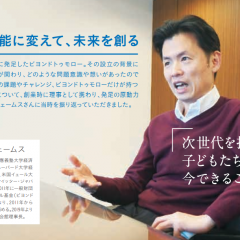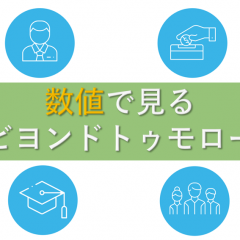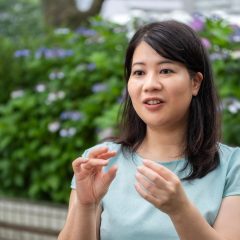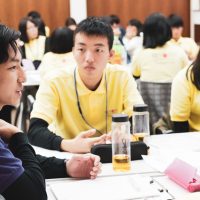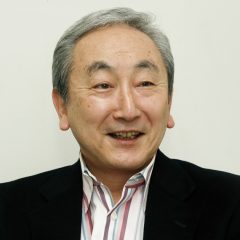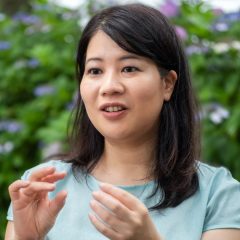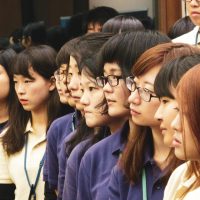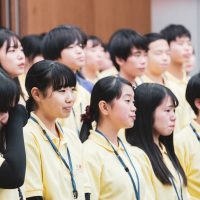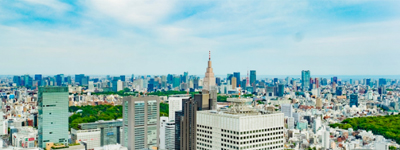Our Challenge towards the Future, Continues
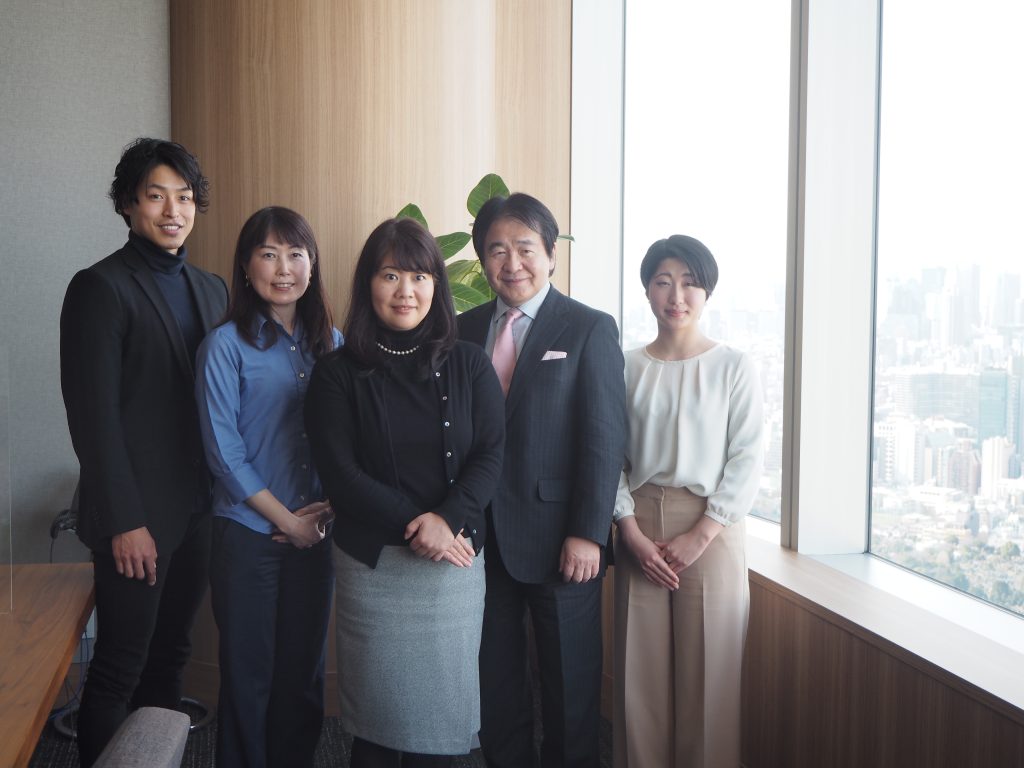
It has been 10 years since the foundation of ‘BEYOND Tomorrow’. Since then, we have worked towards creating a society in which diverse values and thoughts are accepted through supporting youths who have experienced adversity. Commemorating our 10th year, we look back through different perspectives on the progress ‘BEYOND Tomorrow’ has made. We invite current program participant, Honoka Inamura, and program alumni, Shimpei Fujita. We also invite Naoko Yamazaki, member of ‘BEYOND Tomorrow’s Board of Councilor and Heizo Takenaka, an advisor to the organization.
Participants Profiles

Honoka Inamura
Current student in the “BEYOND Tomorrow” 2015-2021 Program | Born in Miyagi Prefecture. Graduated from Miyagi Gakuin High School. Currently a student at Sophia University, majoring in Foreign Languages. Studied abroad in Bolivia during high school and at Javerina University in Bogata, Columbia during her undergraduate studies.
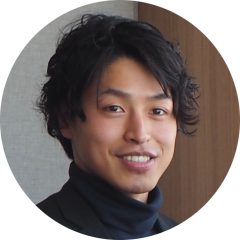
Shinpei Fujita
Participated in “BEYOND Tomorrow” 2012 – 2015 Program | Born in Miyagi Prefecture. Graduated from Kanagawa Prefectural Kishine High School and Kanagawa University with a Bachelor of Law. Started swimming from 5 years old. A national swimming competition champion and was captain of Kanagawa University’s Swimming Team. Currently working as an actor, belonging to “Ankalidiazo”, a talent management company.
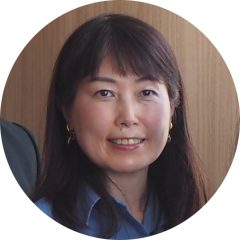
Naoko Yamazaki
Astronaut | Graduated from the University of Tokyo with a Bachelor’s and Master’s degree in Aerospace Engineering. Went to space in 2010 in the Space Shuttle for an International Space Station (ISS) maintenance mission. Retired from JAXA in 2011. Currently a member of the Cabinet Office’s Committee of Space Policy, an advisor of Young Astronauts Club (YAC) and an honorary director of Matsudo City Community Center.
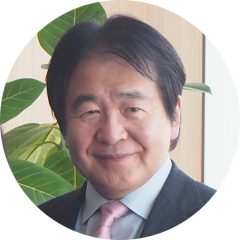
Heizo Takenaka
Professor Emeritus of Keio University and a professor at Toyo University | Graduated from Hitotsubashi University with a Bachelor of Economics. Started his career at the Japan Development Bank. Beginning in 2001, he has worked as the Minister of State for Economic and Fiscal Policy, Minister of State for Financial Services and Minister of Internal Affairs and Communications. Since retiring from politics, he is an executive chairman of Pasona Group and a non-executive director of Orix.
Days when we couldn’t talk about our experiences of the earthquake as we lived through times of uncertainty.
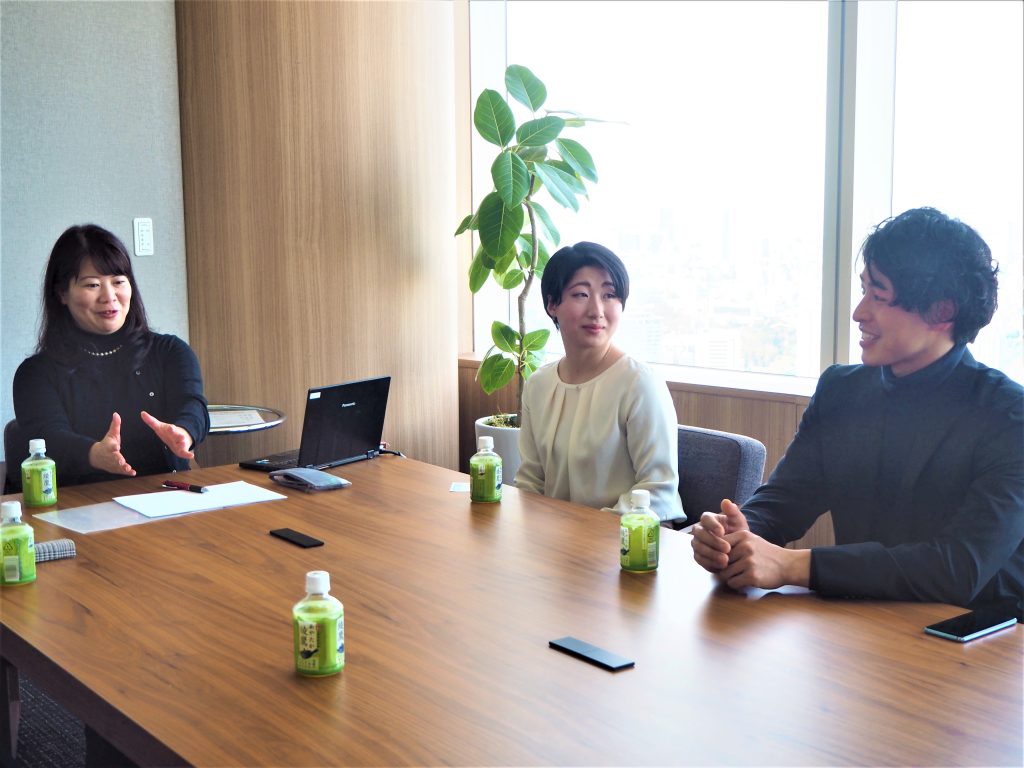
To begin, please share with us what happened 10 years ago on March 11th. On that day, where were you and what were you doing?
Inamura I was a seventh grader at a junior high school in Sendai, Miyagi Prefecture and I was in the middle of homeroom when the earthquake hit. We immediately evacuated to the schoolyard and eventually moved to the school auditorium. After a while, I was able to get in touch with my family and my grandfather told me that our house got “swept away”, but I couldn’t understand what he was saying. My school was several tens of kilometers inland from my house, so I could not grasp the thought of a tsunami at first. But when my father came to pick me up, he told me, “We don’t have a place to go back to, so let’s stay here at school tonight”. That is when I realized my house really got swept away. The following day, we began staying at an izakaya bar restaurant that my relatives run for a few days. After that, my twin sister and I started to live away from my parents at another relative’s house.
Fujita I was an eleventh grader at a high school in Kesennuma, Miyagi Prefecture. That day, I was home after attending a rehearsal in the morning for our end-of-year assembly and thinking of getting ready for afternoon swimming practice. When the earthquake hit, the memory of an earthquake 2 days prior immediately popped up in my mind. On March 9th, an offshore earthquake shook with an intensity of 5 on the Japanese seismic scale, but there was no resulting tsunami. So I thought, this time as well, it would only be a shake. But what happened next was something that I had never imagined – a major earthquake followed by warnings of an imminent large tsunami.
Did you evacuate to higher grounds?
Fujita My house was not even 100 meters away from the coast, so my father, my grandmother, my younger brother and I jumped in our car to move towards higher grounds. But there was only 1 road with the traffic lights not functioning, which caused a huge traffic jam— we were trapped in a storm of honking and anger building up as people were desperately trying to move away from shore. My father was certain that if we stayed in the car, we would be swept away by the tsunami, so he immediately took us to the nearest hotel. Soon after the tsunami made land, almost everything in our town was wiped out. Ferries and oil tanks were swept away with fire rising and spreading from a dockyard. We had evacuated to a 7-story hotel, but houses that were washed away crashed into the 3rd floor as the uncertainty of the spreading fire was increasingly growing. That night, I cuddled a fire extinguisher to sleep.
These two went through extreme uneasiness far beyond our imaginations. Takenaka-san and Yamazaki-san, could you tell us about your experience in Tokyo that day?
Takenaka When the earthquake hit, I was in the director’s room at Keio University. I am from Wakayama Prefecture, where earthquakes are frequently, so I thought I was used to it, but the tremor that day was something I will never forget. Announcements urging everyone to evacuate from buildings blared as the space outdoors became packed with people evacuating. I eventually found my car undamaged, so I decided to drive back home— my normal 20 minute commute took roughly an hour and a half. And, when I got home, all the elevators in my apartment building had stopped working. Before I left campus, I left my office open for those who could not go home as there were water and blankets there.
Yamazaki It was not too long since I came back from the US when the earthquake happened. That day was class observation day so I was with my daughter at school. When the ground began to shake, all the students hid under their desks. When the shaking stopped, we all evacuated the building. We were without power until late into the night, but we were able to use the internet so I reached out to as many people as possible to better understand the situation. That night, what came into my mind was the thought of the September 11th attacks. I was in Russia for training and when I first learned of the attacks on the news, I was shocked. That same feeling revived that night and I was worried about the possibility of a growing disaster remembering that there were nuclear power plants in Fukushima.
Inamura san and Fujita san, how were you feeling as the situation changed completely in your hometown?
Inamura At my junior high school, students were from various areas both within and outside the prefecture. Most of my classmates were not affected by the tsunami. After the earthquake, I began to receive messages from many friends asking “Are you alright?”, but I was the only one who wasn’t ‘alright’. Everyone except for me was able to continue studying as before, but I had lost everything besides what I had on hand on the day of the earthquake. Many days passed while I could do nothing… I was anxious, feeling as if I had been left behind.
So you did not have anyone around who you could share your experience with.
Inamura When school resumed, we were told to bring some childhood photos by a student that was assigned to make a photo album. When I explained why I did not have photos, the mood became dark, as if he was saying, “Oh, please stop with such a depressing topic…’” Of course he didn’t intentionally do that, but I felt as if I was not allowed to talk about it… I was even unable to open up my feelings to my family— maybe I thought I had to pull myself together as an older sister.
Fujita I lost my house too, but all my family members were safe. So, every time I heard of someone having lost their relatives, I could not have helped feeling how lucky I had been. I began staying at my acquaintance’s place after the disaster. Feeing how lucky I was to have a place to stay with a roof over my head, I began seeking what I can do for those around me.
After that, Fujita san, you reached a turning point, didn’t you?
Fujita I had been swimming since I was young. Yet, there was no way I could say I wanted to swim, being in a disaster stricken area where we did not have running water. At some point, I got to know a journalist who encouraged me to write down how I felt at that time. A picture of myself holding a message card saying ‘I want to swim’ was published in a newspaper along with an article about me. This eventually led me to transfer to a high school in Kanagawa Prefecture with an opportunity tied in to advance to university. I was really grateful for that. Yet, while I knew that people around me were caring for me, as I was alone in an environment where there was no one else who had gone through a similar experience, I had felt that it was better for me not to talk about the disaster in order to get along well with those around me.
Meeting new friends to share the pain in order to take a step forward
Inamura san and Fujita san, how and when did you get to know BEYOND Tomorrow?
Inamura In 2013 when I was in the first grade of high school, I participated in ’Tohoku Future Leaders Summit’ held in Tokyo. I had been wanting to go to a gathering where people who were affected by the disaster came together. Being inherently shy, in the beginning, I was surprised and hesitant to share my experiences with people who I was meeting for the first time. Nevertheless, I was surprised to find myself naturally casting tears as I began to talk. Until then, I rarely cried over the disaster, so I had thought I had nothing to feel sad about it. However, I realized for the first time that it actually was a rough experience for me. After that, I gradually became able to open up and talk about my own experiences with the earthquake as well as to express my emotions more easily. I think getting involved with BEYOND Tomorrow at that time helped me to overcome the disaster for the first time.
Fujita My first interaction was when I participated in the very first ‘Tohoku Future Leaders Summit’ held half a year after the earthquake. I was attracted by the purpose of the event—to become a leader from the Tohoku region. There, people who gathered were similarly affected by the disaster, but had gone through different experiences than mine. I had never listened to others as well as I did during then. I was also flooded with relief— a comforting feeling that they were certainly listening to what I had to share. Some even told me that they were saved and even inspired by my stories. I was really happy to know that it is okay to talk about it, and that I can let out what I had been holding inside. I think talking with people who went through the same experience made me open up.
Takenaka san had sent students to the World Economic Forum in Davos to share with the world on the situation in the disaster affected area.
Takenaka Takenaka : At the time, a junior high school girl made a speech on her own experience, which was very moving. I still recall that after the speech, a president of a big company in Switzerland came to me and gave encouragement that “Japan, the country where a mere high school student who went through a hard time could share such an impressive message, will definitely be alright”. It was such a precious experience for myself too, as I was taught many things by our youth.
I think there are 3 keywords in the current era. Those are, ‘smart’, ‘sustainable’ and ‘inclusive’. As you know, it is very important to realize the sustainability of the global environment by utilizing smart technologies such as AI (Artificial Intelligence). Another one is ‘inclusive’. It means ‘including the whole/entire’, in other words, ‘no one is being left out’. Here, I believe, the starting point of ‘inclusive’ is to give opportunities to the youth who had gone thorough hardship. It is quite difficult to put into practice, but BEYOND Tomorrow has been continuing this for the past 10 years. I think this is amazing.
Yamazaki san too, has been involved in the activities for BEYOND Tomorrow since its beginning, and has shared many stories with students based on her own experiences in space.
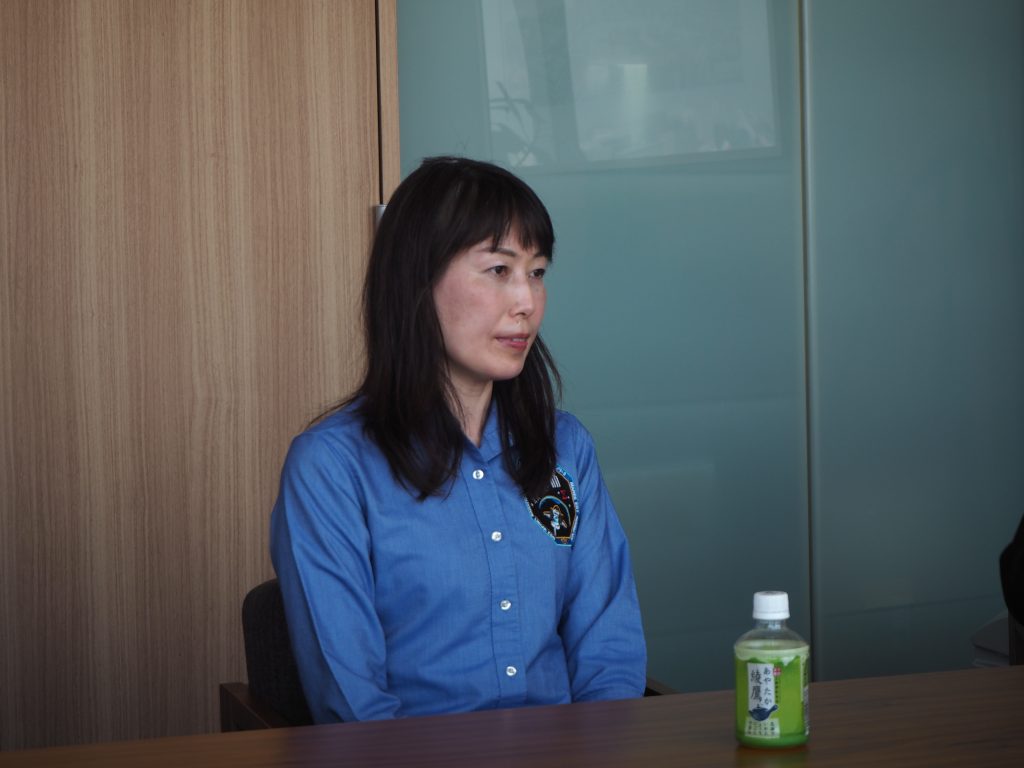
Yamazaki It was about 2 months after the earthquake when I got an offer to become involved with this organization. I remember, when I first heard about the philosophy and activities of BEYOND Tomorrow, I was impressed how the program is designed to be empathetic towards every single individual. I emphasized a lot with the belief on which this organization’s activities are based. I could tell that it is firmly believed here, that the future assets for Japan is each one of the youths joining BEYOND Tomorrow and growing to be strong after having gone through various difficulties.
I think it is very hard to talk about one’s own painful experience in front of others. But, if you can grasp that experience objectively and share it appropriately, it is such a wonderful thing. As you two have said, it can only be done through being involved in the activities of BEYOND Tomorrow because you gain a feeling of confidence that you are allowed to be a spreader. No matter how wonderful the person may be, a proper environment is needed to enable one to take action effectively.
What have you felt through the BEYOND Tomorrow program, Inamura san?
Inamura Inamura : I had an opportunity to manage the Summit when I became a university student. Through the summit, I learned that there is no need to compare myself with others, but I can just move forward at my own pace. I am not the type of leader that stands in front and leads, but I was happy to find my own leadership style by supporting my teammates behind the scenes.
Also, as the summit participants were expanded to include those from all around Japan, it was greatly beneficial for me as I was able to meet students with various backgrounds. Although I had experienced the earthquake, I was able to continue studying and even when I asked for the opportunity to study abroad, I was granted to do so. Since I have lived my life without much struggles, it seemed that I lacked the ability to empathize with others. I previously thought that I was able to study abroad solely because of the effort I had put in, however through the summit, I realized that it was because of help from others. Through this, I began to gradually empathize to the various social issues.
Inamura san, you have studied abroad when you were in high school and university?
Inamura Yes, in high school I studied in Bolivia and in Columbia during university. I was unable to take the initiative in high school, however by having discussions and presenting in front of audiences through the BEYOND Tomorrow activities, I began to proactively jump into various communities. I was even able to negotiate from staying at a dorm to homestay as a university student studying abroad. I feel that I grew greatly as I began to be able to put my thoughts into action, as well as being able to express my opinions … I am currently job hunting and I also felt this when I partook in some internship programs.
Fujita san, do you feel that getting involved with BEYOND Tomorrow has affected your life in any way?
Fujita Through the BEYOND Tomorrow program, I have repeatedly felt that “There is nothing impossible that I cannot do”. When I first joined the Leaders’ Summit, I began to speak with people I had never spoken with, and we were given the opportunity to share our thoughts and feelings, understand one another and to create some proposals together. In the following year, I joined as a team leader and in the year after that, as an administrator - I began to rapidly climb the stairs of growth. When participating in the BEYOND Tomorrow program, I found myself to be one individual, instead of a swimming athlete.
I had an opportunity to express my thoughts at the US-Japan Council held in Seattle, and also at the Asia Ministerial Conference on Disaster Risk Reduction (AMCDRR) held in Thailand. At the one in Seattle, even though I was not fluent, I was assigned to give a speech in English. When I had participated at the gathering in Thailand, I arrived later than everyone else, so I had to reach the hotel from the airport all by myself at 4:00 in the morning. Given I was unfamiliar with Thailand, I had to do my best to explain to the taxi driver in English where I was staying and somehow I managed to get to the hotel. Through these experiences, I became more courageous and I had started to become a story teller, kataribe, about the earthquake. I went to companies and spoke in front of classes at schools… Every time I read feedback that I received after each session, I was happy to know that there are a lot of people who want to hear about my stories that I had kept inside, and I aspired to share the lessons I learned to many people so that they can be prepared if something happens in the future.
Takenaka Goto Shinpei, who became the President of the Imperial Capital Reconstruction Department right after the Great Kanto Earthquake in 1923, had summarized about what happened during the earthquake in English. In the preamble of the book, he writes along the lines of ‘At the time of the earthquake, people from all around the world has helped us. What we can do in return is to pass on all our responses that we took to deal with the natural disaster, whether it was a success or a failure’. Right after the Great East Japan Earthquake, I had hosted a seminar, “Lessons learned from the Great Earthquake”, where we discussed and analyzed crisis management with experts, and had published a book summarizing our discussion. As Inamura san and Fujita san has mentioned, it is very important to pass down on our learnings from the earthquake.
Powerful, yet supple restoring efforts to create our future
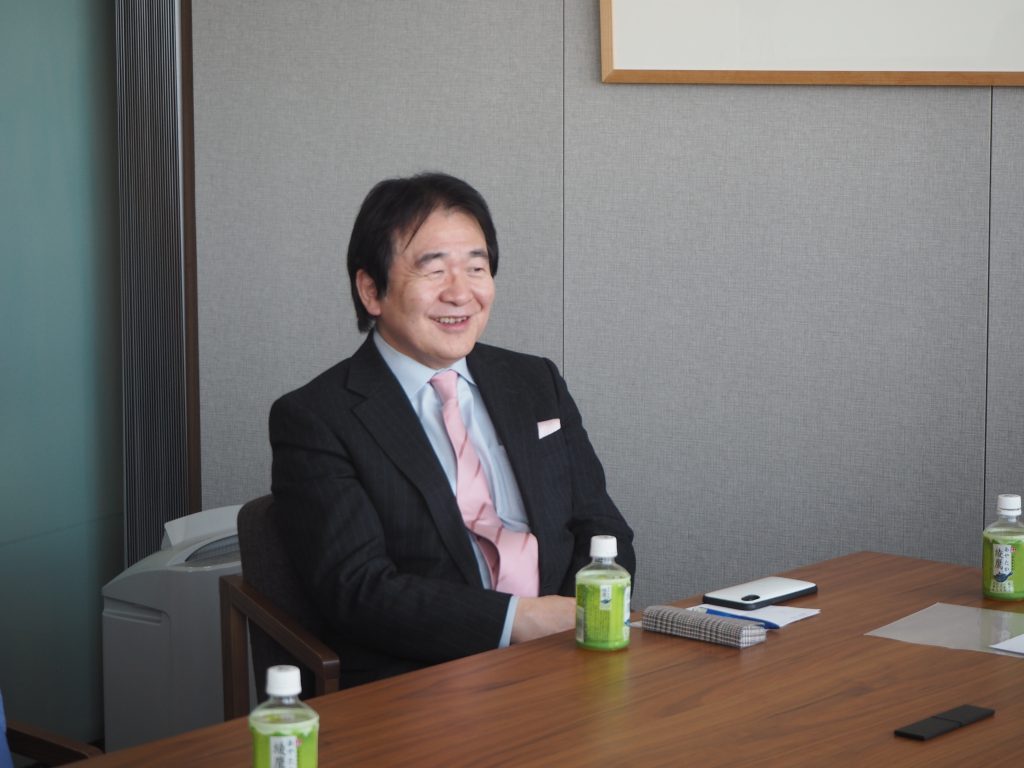
Takenaka As one of the philosophies for BEYOND Tomorrow, I believe that resilience is one important element to make a great leader. As with our current situation with COVID, chaos exposes both the strengths and the weaknesses that humans and our society hold. As MIT Media Lab has expressed on the age after the internet as “resilience over strength”, there is always a possibility that even a strong society can collapse and what is important is the power to recover. The same can be said about a large natural disaster. If we have strong resilience, we can recoup. I believe that if the youth who have faced hardship can overcome their weakness and make the most of the strengths, we will be able to build leaders.
Yamazaki In the exam to become an astronaut, we are always asked, “What adversity have you faced and how did you overcome it?” Resilience is important, and I believe people show their true value when they’re faced with and overcome difficulties. Also, when we conduct training as an astronaut, most times it happens out in the field and we spend time in teams in an environment where we all need to contribute to support ourselves. In this training, we change leaders every day. This way, we can all break out of our shells by finding aspects that we didn’t know about each other. Therefore, we purposely put ourselves in an unfamiliar environment in order to understand and respect how each role is vital. Adversity is conspicuous and if we are able to truly understand the role that each one of us plays, that becomes a true strength for all of us.
Can we here your future plan, Inamura san, Fujita san?
Inamura Currently I am job hunting so I do not know for sure, however I would like to create an empathetic society, where people can think of other peoples’ issues as if it was their own. I am thinking of joining the education industry or PR industry in order to realize this.
Fujita While I am now working as an actor, every day I feel I am so grateful to those around me who have made me into who I am today. I don’t know what my future holds, but I would like to give it my all. My ultimate goal is to become an actor that can move the economy.
Takenaka As I turned 70, what I want to tell everyone is that ‘Life is shorter than you think’. I hope everyone can pursue what they really want to do.
Yamazaki I would like everyone to enjoy each single moment as much as they can. The world is much bigger then you think, so step outside your comfort zone being curious and empathetic.
Thank you very much.
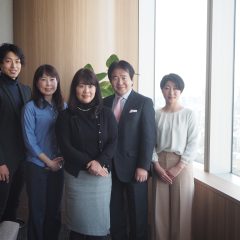
Discussion

